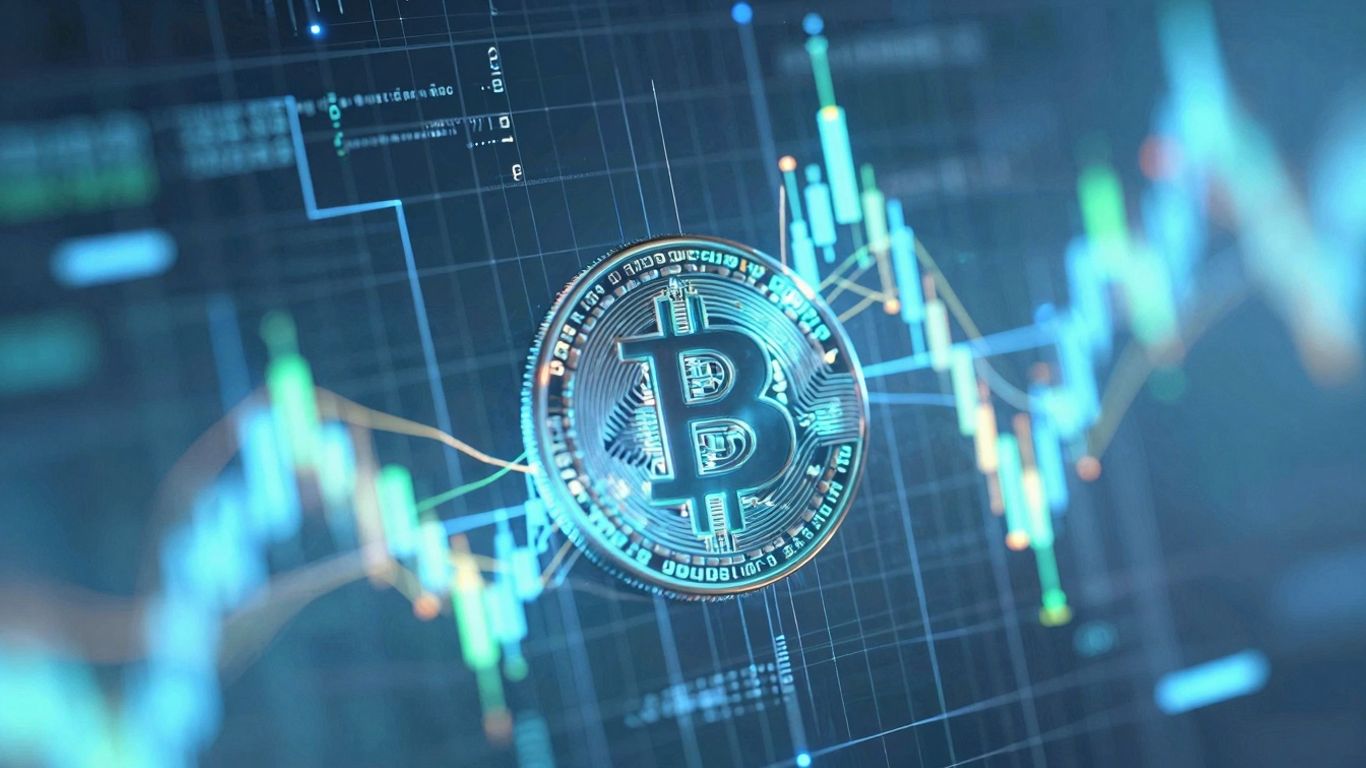[ newsletter ]
Stay ahead of Web3 threats—subscribe to our newsletter for the latest in blockchain security insights and updates.
Thank you! Your submission has been received!
Oops! Something went wrong. Please try again.
Explore how blockchain in auditing ushers in a new era of transparency and efficiency. Learn about benefits, applications, and challenges.





In today's fast-paced digital world, keeping financial records accurate and transparent is a big deal. Traditional auditing methods, well, they've been around a while, and sometimes they just can't keep up with all the new tech. That's where blockchain comes in. Think of it as a super secure digital notebook that everyone can see but nobody can mess with. This technology is changing how we audit, making things way more open and efficient. We're talking about a whole new level of trust in financial dealings, and it's pretty exciting to see how blockchain in auditing is shaping up.
Think about how we've always done audits. It's often a slow process, right? Lots of paperwork, trying to match up numbers from different places, and hoping nothing got messed with along the way. It’s like trying to put together a giant puzzle where some pieces might be missing or even swapped out. That’s where blockchain comes in, and honestly, it’s a pretty big deal for how we check financial records.
At its heart, blockchain is like a digital notebook that everyone involved can see, but nobody can erase or change what’s already written. Every transaction is a new entry, and it’s linked to the one before it using some clever math. This makes it incredibly hard to tamper with. If someone tried to alter a past record, it would break the chain, and everyone would know. This built-in security means the data is trustworthy from the start.
This unchangeable nature is the bedrock of trust in a blockchain system. It means auditors don't have to spend as much time trying to verify if the records themselves are accurate; they can trust the records are what they say they are.
Instead of one central place holding all the financial information, blockchain spreads it out across many computers. This means there isn't a single point of failure or control. Everyone on the network has a copy of the ledger, and they all agree on what the correct version is. This shared view makes everything much more open. Auditors can see the same information that management sees, which really cuts down on guesswork and hidden information.
Most people hear "blockchain" and immediately think of Bitcoin or other digital money. But that’s just one use case. The technology itself is useful for any situation where you need a secure, transparent, and unchangeable record of transactions or data. Think about tracking goods in a supply chain, verifying the authenticity of documents, or even managing patient records in healthcare. In auditing, it means we can apply these same principles to a much wider range of financial and operational data, not just traditional accounting entries.
So, how does blockchain actually make auditing better? It's not just about fancy tech; it's about making the whole process faster and more reliable. Think about it: instead of digging through piles of paper or sifting through countless digital files, auditors can get direct access to information as it happens. This means less time spent chasing down data and more time actually analyzing it.
One of the biggest game-changers is the ability for auditors to see transactions as they occur. Because blockchain acts like a shared, constantly updated ledger, there's no more waiting for month-end reports or dealing with outdated information. Auditors can tap into this live data stream, which really speeds things up. This immediate visibility helps catch issues early, rather than discovering them weeks or months later. It's a bit like having a live feed of all financial activity, which is a huge step up from the old way of doing things.
Remember all that time spent matching up different sets of records? Blockchain pretty much eliminates that headache. Since everyone involved is looking at the same, unchangeable record, the need for complex reconciliation between different systems or departments drops significantly. This not only saves a ton of time but also cuts down on the human errors that often creep into manual reconciliation. Fewer reconciliation tasks mean fewer mistakes and a more accurate picture of financial health.
When you combine real-time data access with reduced reconciliation, the impact on audit timelines is pretty dramatic. Audits can move from being lengthy, periodic events to more continuous, efficient processes. This means auditors can complete their work faster, providing more timely assurance to stakeholders. It also allows audit teams to focus on higher-value activities, like risk assessment and strategic advice, rather than getting bogged down in routine data checks. The whole audit cycle becomes much smoother and quicker, which is good for everyone involved.
The shift to blockchain in auditing isn't just about adopting new technology; it's about fundamentally changing how we approach financial verification. It moves us towards a system where trust is built into the process itself, rather than being something that needs to be painstakingly verified at every step.
Here's a quick look at how these improvements stack up:
This move towards greater efficiency is something many in the accounting world are looking at closely, with some Big Four auditors already exploring how blockchain can boost performance [a7a3].
This is a big one. Because blockchain records are chained together using cryptography, changing any past record would mean redoing all subsequent records, which is practically impossible on a large, active network. This makes the data incredibly secure and trustworthy. Think of it like a digital notary that stamps every transaction, making it impossible to alter later without everyone noticing. This means auditors can be much more confident that the financial data they're looking at hasn't been messed with.
With blockchain, transactions are recorded on a shared ledger that many participants can see. This doesn't mean everyone sees every detail of every transaction, as privacy controls can be put in place. However, the existence and flow of transactions are visible. For auditors, this means a clearer, more open view of financial activities. Instead of piecing together information from different, sometimes conflicting, sources, auditors can access a single, shared source of truth. This transparency helps in spotting anomalies or potential issues much faster.
Meeting regulatory requirements can be a headache, but blockchain can simplify things. The immutable and transparent nature of the ledger provides a clear audit trail for regulators. They can more easily verify that transactions comply with laws and standards. This reduces the burden on companies to prove compliance and on auditors to chase down evidence. It's like having a built-in compliance report that's always up-to-date and verifiable.
Here's a quick look at how these benefits stack up:
The shift to blockchain in auditing isn't just about new technology; it's about building a foundation of trust that traditional systems have always strived for but often struggled to achieve. It's a move towards a financial ecosystem where accuracy and honesty are built into the system itself.

It's pretty amazing how blockchain is showing up in all sorts of places, not just for buying digital coins. When it comes to auditing, it’s really changing the game.
Think about tracking where your food comes from or if that designer bag is the real deal. Blockchain makes this possible. Every step a product takes, from its creation to when you buy it, can be recorded on a blockchain. This creates a clear, unchangeable history. This means auditors can easily check if a product is authentic and where it’s been, cutting down on fakes and making sure things are what they say they are. Companies are already using this; for instance, Walmart uses blockchain to track food items, making it super fast to find out where something originated if there's a problem. It’s like having a digital passport for every product.
Healthcare is another area where blockchain is making a big difference. Keeping patient records safe and private is a huge deal, right? Blockchain can help. It allows patients to control who sees their medical history. Plus, the records themselves are protected from being messed with. This helps hospitals and clinics follow rules like HIPAA and makes it easier for different healthcare systems to share information securely when needed. It’s also good for managing data from medical devices, making sure it’s accurate and private.
Beyond just knowing where a product came from, blockchain helps confirm that it was made ethically. For example, in the diamond business, blockchain can track a diamond from the mine all the way to the jewelry store. This way, buyers can be more confident that the diamonds weren't mined in bad conditions or funded conflict. It’s a way to bring more honesty to industries where that’s been a problem. You can look at case studies to see how this is playing out in different sectors [d770].
The ability to trace a product's entire lifecycle on an immutable ledger provides a level of assurance that traditional methods simply can't match. This transparency builds trust between businesses and consumers alike.
Here’s a quick look at how it works:
This process allows auditors to easily verify claims about a product's origin, materials, or ethical production standards.
While blockchain offers some pretty amazing possibilities for auditing, it's not exactly a walk in the park to get it implemented. There are definitely some hurdles we need to clear before it becomes standard practice.
Governments and financial bodies are still figuring out how to deal with blockchain and all the digital stuff that comes with it. Rules are changing, and what's okay today might not be tomorrow. This uncertainty makes it tough for companies and auditors to know exactly what they need to do to stay on the right side of the law. It's like trying to build a house when the building codes keep changing.
Blockchain is famous for being open and transparent, which is great for audits. But, this openness can also be a problem. Financial records, even when put on a blockchain, can contain sensitive information. We need to find ways to keep that data private while still letting auditors see what they need to see. It's a tricky balance to strike.
As more and more transactions happen on blockchains, the systems need to be able to handle all that data. If a blockchain can't keep up with the volume of transactions, it slows everything down. Auditors need systems that are fast and can manage large amounts of data without breaking a sweat. We're talking about making sure the technology can grow with our needs.
The path to widespread blockchain adoption in auditing isn't just about the technology itself; it's also about creating a supportive environment through clear rules and educated professionals.

The shift towards blockchain in auditing isn't just about new tools; it's about a whole new way of thinking about data. Auditors need to get comfortable with concepts like distributed ledgers, smart contracts, and cryptographic principles. Think of it like learning a new language for financial records. Firms are starting to offer training, but it’s up to individual auditors to really dig in and understand how these systems work. It’s not enough to just know that a transaction is on the blockchain; you need to understand how it got there and what that means for its integrity.
Auditing has always involved talking to different people, but with blockchain, that collaboration gets a whole new dimension. Auditors will need to work more closely with IT departments, software developers who build these blockchain systems, and even regulators who are still figuring out the rules. Getting everyone on the same page is key. Imagine trying to audit a company where the finance team uses one system, IT uses another, and neither talks to each other – that’s kind of what we’re trying to avoid, but on a much bigger, more complex scale. Building these bridges is going to be a big part of the job.
Traditional audit procedures, like sampling transactions or physically verifying documents, don't always translate well to a blockchain environment. Since the ledger is immutable and often provides real-time data, auditors might spend less time on checking individual entries and more time on understanding the system's controls and the logic embedded in smart contracts. It's a move from transaction-level testing to more of a system-level assurance. We're talking about a fundamental change in how audits are planned and executed.
The core idea is moving from verifying past events to assuring the integrity of the ongoing digital record-keeping process itself. This requires a different mindset and a new set of skills focused on system design and data flow validation.
Here’s a quick look at how some audit tasks might change:
So, we've talked a lot about how blockchain is changing the game for auditors. It's not just about new tech; it's about making financial records more honest and easier to check. Think fewer headaches with data and more confidence for everyone involved, from companies to investors. While there are still some kinks to work out, like getting everyone on the same page with rules and training people properly, the direction is clear. Blockchain is setting us up for a future where audits are quicker, more reliable, and just plain better. It’s a big shift, but one that promises a more trustworthy financial world for all of us.
Think of blockchain like a digital notebook that many people share. Once something is written down, it's almost impossible to erase or change it. This makes it super trustworthy for keeping track of important information, like money records. In auditing, this means less chance of fake records and more confidence that the numbers are correct.
Because blockchain keeps records clear and hard to mess with, auditors don't have to spend as much time checking if everything adds up. They can see the real-time information directly. This speeds up the whole process and helps catch mistakes or tricky dealings much quicker.
Yes, that's a big part of it! The way blockchain works means that once a transaction is recorded, it's locked in. It's like sealing a document. This makes it extremely difficult for anyone to change records secretly, which helps keep everything honest and accurate.
Absolutely! Companies are using it to track where products come from, like food from a farm to your plate, to make sure it's safe and real. It's also being used to check that things like diamonds are sourced ethically, meaning they weren't mined in a way that harms people or the environment.
It's still pretty new, so the rules and laws around it are still being figured out. Also, since blockchain is so open, figuring out how to keep private information safe while still being transparent can be tricky. Plus, as more people use it, making sure the systems can handle all the information is important.
Auditors need to get comfortable with new computer skills. They have to learn how to use the special tools that work with blockchain to check the records. It's about understanding the technology itself and how to use it to do their job even better.


